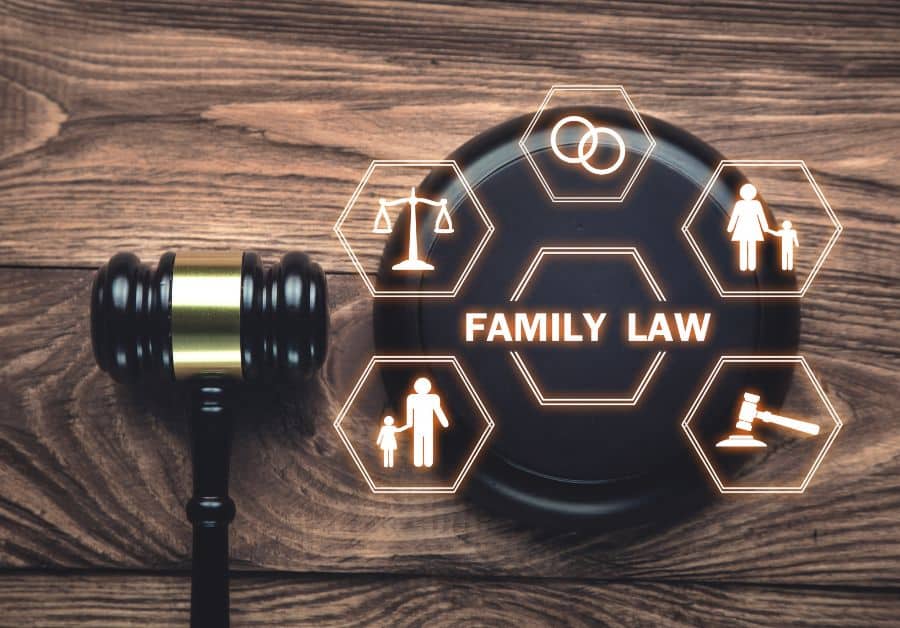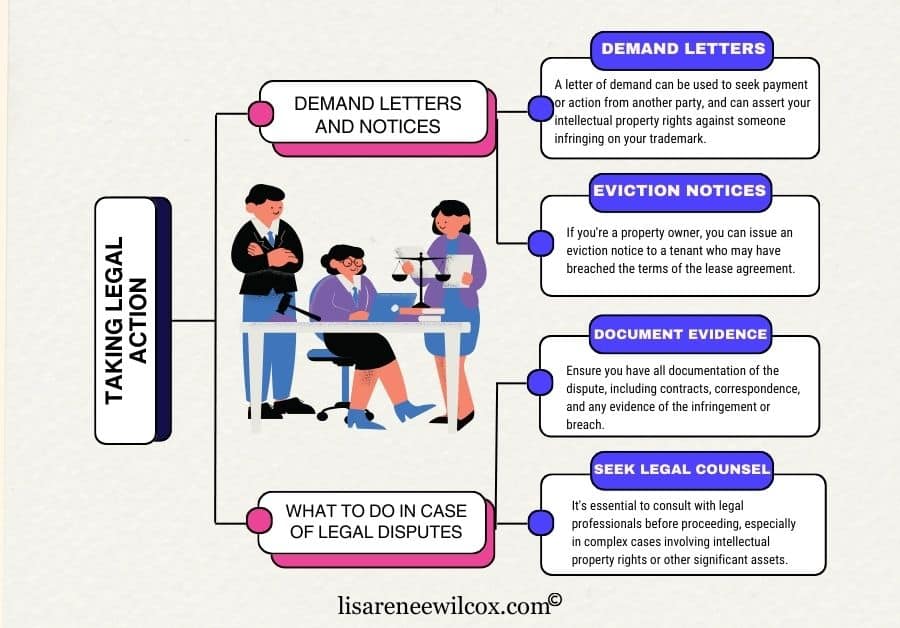Accessing legal forms and documents online has never been simpler. Plenty of free templates are available that cover a wide range of needs—whether you’re a business owner managing corporate matters, an individual navigating family law, or an entrepreneur dealing with property issues.
KEY TAKEAWAYS
Having the right documents is key to staying organized and protected. These templates serve as helpful starting points, making it easier to draft legal paperwork.
From my experience, they can save time and provide clarity, though I always suggest a quick review to ensure the form aligns with your unique situation.
Understanding the proper use of legal templates is crucial. They provide a framework to help you outline the terms, conditions, and clauses relevant to your specific situation.
While these templates are valuable for informational purposes, it’s essential to remember that they do not replace professional legal advice. They are tools to assist you in protecting your interests and ensuring that your documents are accurately composed.
When dealing with more intricate legal matters, consulting with legal professionals is still recommended to customize the documents to your unique circumstances.
Understanding Legal Templates
What Are Legal Templates?
Legal templates are pre-made, universal forms created to assist you in drafting legal documents. They provide a great starting point for various legal requirements and ensure adherence to legal regulations.
Essentially, a template serves as a guide, outlining the essential elements of agreements, contracts, and other legal documents. This enables you to fill in the specific details pertinent to your situation. Think of it as a blueprint for your legal needs.
Benefits of Using Legal Templates
Using legal document templates offers several advantages:
- Efficiency: Templates save you less time crafting documents from scratch.
- Consistency: They promote uniformity in document preparation.
- Accessibility: An extensive collection of templates is often available online, providing you with the tools for various legal matters at your fingertips.
In Clio’s Legal Templates, you’ll find practical and user-friendly guidance on creating and using these forms effectively, whether you’re a seasoned attorney or just starting.
Types of Legal Documents
Legal documents are essential tools that safeguard your personal and business matters. They help define relationships, set out rights and responsibilities, and provide legal protection.
Business Templates
Your legal documents are like a map; they guide your enterprise’s journey and protect its interests. Among the standard legal documents, you might frequently need a Business Plan or a Non-Disclosure Agreement (NDA) to safeguard your ideas and strategies.
If you’re partnering with another party, a Joint Venture Agreement outlines the terms of your collaboration.
For your company’s internal governance, a Directors’ Resolution may be necessary to record board decisions, while an LLC Operating Agreement is crucial if you’re setting up a Limited Liability Company.
Regarding formal agreements with other parties, having a precisely crafted Legal Contract Template, such as a Purchase Agreement or Bill of Sale, can secure your transactions and help prevent disputes.
Personal Legal Forms
There are various forms that you may use to ensure your interests are preserved in your personal affairs. A Last Will is vital to determining how your assets will be distributed. If you’re entering a marriage, a Prenuptial Agreement can help you manage your finances in agreement with your partner.
Issues of support and consent are covered with child support documents and landlord’s consent forms when changes to a rental property are involved. If you encounter difficulties, a Letter of Demand or a Desist Letter can formally address grievances like Trademark Infringement or Poor Performance.
Real Estate Documents
Real estate transactions require documents that accurately reflect the terms of agreements between all parties involved. A Residential Lease or Sublease Agreement outlines the rights and responsibilities of landlords and tenants. A Commercial Lease Agreement details the specifics expected in more complex arrangements for commercial properties.
If things go awry, an Eviction Notice becomes necessary for property owners to reacquire possession of their property. On the other hand, a Terms of Use policy is functional when dealing with real estate platforms or services, clarifying the conditions under which your property is listed or marketed.
Drafting Legal Documents

How to Write Clear and Effective Legal Forms
When drafting legal forms, focus on using plain English to keep them clear and easy to understand—you don’t need to be a legal expert to create an effective document. Use short sentences and avoid legal jargon that might confuse others.
Prioritize accuracy by being precise with facts, keeping it concise to prevent misunderstandings, and respecting privacy by including only necessary details.
Be specific about the rights and obligations of everyone involved. As an attorney, I’ve found that simple, well-organized forms prevent confusion and build confidence for everyone using them.
Ensure that terms relating to medical care are correctly used in documents like medical directives—this is vital for the intended outcome of such legal forms.
Using a Document Editor
A good document editor is intuitive and helps you align your document with law practice. When you choose a document editor:
- Look for features like auto-formatting, legal templates, and easy insertion of clauses and articles.
- Ensure it has a review feature, which allows you to get feedback from others, including a licensed attorney or legal professional.
These tools are designed to guide you through the process and help you avoid potential legal mistakes. While a document editor can be helpful, having a licensed attorney review the final version can make a big difference, especially for complex agreements involving multiple parties.
In my experience, a quick review often catches details that automated tools might miss, giving you extra peace of mind.
The Role of Legal Professionals

When to Consult an Attorney
It’s crucial to consult an attorney when faced with legal disputes or the need for official legal advice. Your decision to hire an attorney should be based on the complexity of your legal requirements and the potential legal action you might face. Business owners, in particular, benefit significantly from early legal counsel to ensure compliance with the law.
- Complexity: When legal matters are complex and require specific knowledge, an attorney is your best asset.
- Risk: If legal action could result in severe consequences, such as financial loss, seek an attorney’s guidance.
Legal Fees
Always consider the potential cost of legal fees, but balance this against the risk and complexity of your situation.
Attorney-Client Relationship
The attorney-client relationship is a cornerstone of legal services, providing you with a confidential channel to discuss your case. Here’s what you should know:
- Trust: This relationship is built on trust, with the understanding that your attorney has your best interests at heart.
- Communication: Clear and open communication with your attorney ensures the best possible advice and representation.
Building a relationship with clients is part of the hiring process for a new lawyer and helps them understand and meet your specific needs. In my experience, getting to know a client’s goals and concerns makes providing tailored and practical legal support easier.
Protecting Your Interests

Intellectual Property and Privacy
Intellectual property rights protect your creative work, from inventions and books to images and brand names. If you run a website or business that collects user data, having a clear Privacy Policy is essential to safeguard these assets.
This policy should explain how you collect, use, and manage user information, include details about user consent, and outline your data protection measures. Regular updates are important to stay compliant with changing laws and regulations.
Creative works can take immense time and effort to produce; thus, securing them legally can deter others from using them without your authorization.
Confidentiality and Non-Disclosure
When discussing business matters, it’s common to share sensitive information that you want to keep private. A Confidentiality Agreement helps safeguard these details, whether you’re working with employees, contractors, or potential partners.
It’s important to clearly specify what counts as confidential. For business ideas or strategic plans, a Non-Disclosure Agreement (NDA) is often the best choice. Be sure to outline the consequences of breaking the agreement to emphasize its importance.
As an attorney, I always recommend being precise in your wording and ensuring all parties understand their obligations—this can prevent issues down the line.
By clearly defining the confidential information and the permitted use within these legal documents, you can conduct business with peace of mind, knowing that your secrets are legally protected.
Managing Business Needs
Utilize tailored documents that fit the unique aspects of your company and ensure compliance with legal standards.
Business Plans and Agreements
Your business plan is the roadmap guiding the future of your company. It doesn’t just outline your vision and objectives and solidifies your strategies to potential investors and third parties.
A clear and comprehensive plan can be your ticket to securing that crucial bank account or attracting investors.
Essential agreements, like a directors’ resolution or partnership contracts, safeguard the interests of all parties involved and establish clear guidelines for the management and direction of your limited liability company.
Employment and HR Documents
Efficient employment documents are critical to a smooth hiring process for your new employees. From job offer letters to contracts, having these forms in place helps prevent misunderstandings and clarifies the expectations on both sides.
Designed documents like performance reviews and probationary period agreements are helpful if you want to address specific scenarios such as poor performance.
Also, I suggest remembering that annual general meetings require proper documentation—keep track of decisions and policies with the proper forms, ensuring everything about your business operations is above board and transparent.
Legal Logistics for Entrepreneurs

Starting a New Business
When you’re ready to bring your entrepreneurial vision to life, the first steps involve setting up your business correctly.
As a business owner, you must select an appropriate business structure, such as a sole proprietorship, partnership, or corporation, which will affect your taxes, liability, and ongoing operational requirements.
- Legal Forms: Utilize free online legal form creators to generate the necessary documents for your business.
- Memorandum of Understanding: Secure an explicit agreement with any partners using a memorandum of understanding to lay the groundwork for how your joint venture will operate.
Remember, each business entity comes with its legal implications, so choose the structure that best fits your business plan and goals.
Creative and Freelance Work
Protecting your creations is paramount if you’re a creative entrepreneur or looking to pursue freelance endeavors.
- Contracts: Clear, legally binding agreements protect your interests and define the scope of the work. Create your own with access to up-to-date templates from sites like Clio’s legal document resources.
- Intellectual Property: Ensure your work is safeguarded under the correct intellectual property laws to prevent misuse or theft.
Managing the legal side of your operations serves as the backbone for a thriving business and provides a safeguard for your creative and professional ventures.
Navigating Family Law

It’s important to be familiar with prenuptial agreements and last wills, as well as child support and custody protocols, to ensure the protection of your loved ones and the upholding of your wishes.
Domestic Agreements
Domestic agreements, like prenuptial agreements, are vital in specifying property and assets distribution before marriage. When crafting your agreement, you should:
- Clearly list assets and debts each party owns
- Specify what is deemed as separate property
- Outline how property will be distributed in the event of divorce
- Consider including provisions for spousal support
Ensuring you have a well-drafted prenuptial agreement can save you considerable stress and conflict in the future. There are tools available such as legal document templates, to get you started.
Child Support and Custody
Determining child support and custody can be a meticulous process that should always be handled with the child’s best interests in mind. Key documents like medical records may be required to ensure all health needs are accounted for. Remember to:
- Document each parent’s financial contributions
- Agree on a parenting plan that outlines custody schedules
- Keep detailed records, including medical records, of your child’s needs
- Review your state’s guidelines on child support to understand your obligations
In addition, services like Legal Templates offer customizable forms to help create a parenting plan that fits your family’s unique situation.
Real Estate and Property

When managing or transferring property, you need to have access to the correct forms and legal documents.
From securing tenancy agreements to finalizing a sale, every aspect of real estate now requires precise paperwork to protect your interests and ensure legal compliance.
Residential and Commercial Leases
If you’re a landlord or tenant, residential leases are necessary for renting property. These documents outline your rights and responsibilities, rent details, and the duration of the tenancy.
For business premises, a commercial lease agreement is tailored to address factors like property usage, maintenance, and rent increases.
When drafting a lease, it’s often mandatory to include the landlord’s consent for any alterations the tenant may wish to make.
- Key Elements of a Residential Lease:
- Monthly rent and security deposit amounts
- Lease term and renewal options
- Maintenance obligations and restrictions
- Key Elements of a Commercial Lease:
- Permitted commercial activities
- Provisions for lease termination
- Rent revision clauses
Buying and Selling Property
Whether buying a home or selling a piece of commercial real estate, you’ll need a comprehensive bill of sale and additional closing documents.
The real estate transactions process involves complex negotiations and due diligence to verify the property’s legal status and physical condition.
For sellers, creating an accurate bill of sale helps to confirm that the property has legally changed hands. As a buyer, you should ensure that the property matches the seller’s description and your expectations before committing.
- Buying a Property:
- Conduct thorough inspections and appraisals
- Review and negotiate the terms of the sale
- Selling a Property:
- Prepare the property for sale, addressing any required repairs
- Draft a detailed bill of sale that reflects agreed terms
Using up-to-date templates can help streamline real estate transactions and safeguard rental property investments.
Taking Legal Action

Demand Letters and Notices
Demand Letters
These are your first steps in formally asserting your rights and outlining your demands. For instance, a letter of demand can be used to seek payment or action from another party. In contrast, a desist letter, or cease and desist, can assert your intellectual property rights against someone infringing on your trademark.
Eviction Notices
If you’re a property owner, you can issue an eviction notice to a tenant who may have breached the terms of the lease agreement. This document should comply with local laws and regulations concerning the eviction process.
What to Do in Case of Legal Disputes
1. Document Evidence: Ensure you have all documentation of the dispute, including contracts, correspondence, and any evidence of the infringement or breach.
2. Seek Legal Counsel: It’s essential to consult with legal professionals before proceeding, especially in complex cases involving intellectual property rights or other significant assets.
Remember, taking legal action is a serious step to enforce your rights, and using the proper legal forms can be instrumental in achieving a successful outcome.
Conclusion
Handling legal matters can be much simpler with the right resources. Free legal forms and documents are readily available online, making it easy to manage routine legal tasks.
Websites like Legal Templates and eForms allow you to quickly create documents such as lease agreements or wills, saving valuable time and effort.
While these tools are convenient for everyday needs, complex situations may still require professional legal advice. With these accessible services, you’re well-prepared to manage your legal paperwork efficiently and confidently.
Frequently Asked Questions
What are the most trusted websites for downloading free legal forms and documents?
eForms and Legal Templates are highly regarded websites offering a wide range of free legal forms. They provide access to regularly updated documents for personal and business use.
How can I write my legal documents without incurring costly fees?
Creating legal documents on your own can be done by utilizing templates from websites like Easy Legal Docs, which offers step-by-step guidance and allows you to generate documents directly from your browser.
Which websites provide the best free printable legal forms?
For the most up-to-date and printable legal forms, consider Pandadoc, as they frequently update their templates to comply with current legal standards.
Are there any legal templates available in Word and PDF format that I can use for free?
Yes, many do-it-yourself legal form websites offer templates in both Word and PDF formats that you can use at no cost. They are designed to be easy to fill out and are available for a variety of legal needs.
How reliable are do-it-yourself legal form websites for handling legal matters?
Do-it-yourself legal form websites can be pretty reliable if they ensure their templates are up-to-date with current law and provide clear instructions. However, consulting with a legal professional is always recommended for complex legal matters.
Can I find free downloads of up-to-date legal documents for my personal use?
Absolutely, websites like those mentioned above offer free access to legal documents updated to reflect current laws and regulations, making it easier for you to manage your legal affairs without cost.







